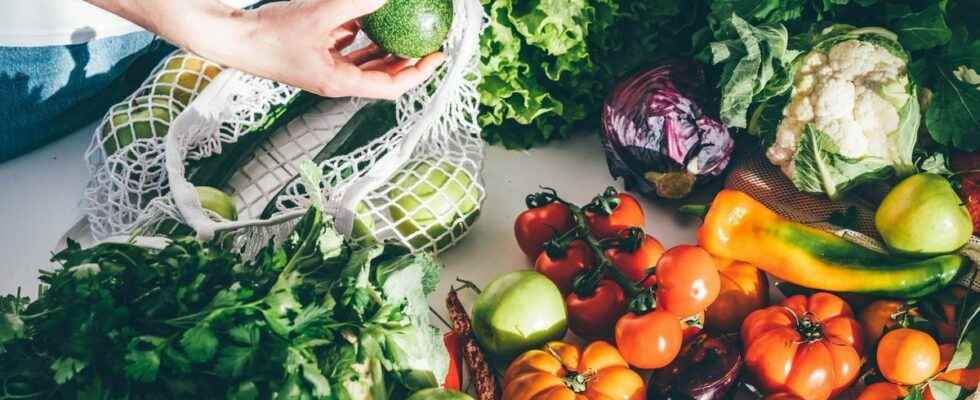Published on
Updated
Reading 2 mins.
Following a healthy diet rich in fruits and vegetables would reduce the risk of breast cancer by 14% in postmenopausal women.
A French study published in the journal Current Developments in Nutrition showed that a vegetarian diet – rich in whole grains, fruits and vegetables – would reduce the risk of breast cancer.
Fruit juice, white bread and sweet desserts are to be avoided
Not surprisingly, the researchers state in the study that to benefit from the effects of the vegetarian diet, “all sugary and processed foods” are to be banned.
Indeed, of the 65,000 French postmenopausal women participating in the study, those who followed an unhealthy vegetarian diet – supplemented with industrial fruit juices, potatoes, white bread, sugary desserts and other processed foods – had a higher risk of developing breast cancer (+20%).
Conversely, women who adopted a healthy plant-based diet – fruits, vegetables, legumes, whole grains, vegetable oils, tea, coffee – saw their risk of breast cancer drop (-14%).
To arrive at these results, the scientists specify that they followed the way in which the participants ate for more than twenty years.
“These findings highlight that increasing the consumption of healthy plant foods and decreasing the consumption of plant foods and less healthy animal foods may help prevent all types of breast cancer.“, confirmed Sanam Shah, doctoral student at the Center for Research in Epidemiology and Population Health at the University of Paris-Saclay, Inserm, Gustave Roussy and author of this study.
However, further work is needed to better understand the links between diet and cancer risk.
In 2018, a study by researchers from the Harvard TH Chan School of Public Health had already shown the beneficial effects on breast cancer of fruits and vegetables – especially those of orange color such as carrots, sweet potatoes, pumpkin, orange, apricot, peach.
Consult an oncologist online
Very often, breast cancer is detected during a simple routine examination. An abnormal mammogram or the discovery of a swelling during palpation of the breasts and/or the hollow of the armpits can thus alert the doctor.
In other cases, signs – more or less visible – can alarm the patient. It’s about :
- A breast lump or deformity;
- A retraction or deviation of the nipple;
- Redness or swelling;
- An “orange peel” appearance on part of the breast;
- Localized breast pain;
- Palpable glands in the armpits;
- Greenish or blood-colored breast discharge.
